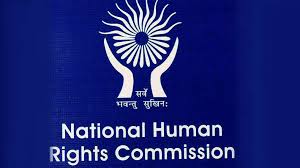
India Commemorates Human Rights Day with Focus on Emerging Challenges and Solutions
The National Human Rights Commission (NHRC), India, hosted a function at Vigyan Bhavan in New Delhi today to mark Human Rights Day, celebrating the Universal Declaration of Human Rights (UDHR) adopted by the United Nations on this day in 1948. In her address to the gathering, Chief Guest and President of India Droupadi Murmu, highlighted the importance of this day as an opportunity to reflect on the ideals enshrined in the UDHR and reaffirm our collective responsibility to foster a world built on justice and human dignity.
Murmu praised India's government for its extensive initiatives aimed at alleviating poverty and eradicating hunger, including providing free food to the underprivileged. She emphasized that India is committed to offering equal opportunities for youth to realize their dreams and is ensuring a host of socio-economic and cultural rights for all citizens. These rights encompass access to housing, clean drinking water, sanitation, electricity, cooking gas, financial services, healthcare, and education, with a special focus on the provision of basic necessities as fundamental rights.
The President also commended the NHRC, State Human Rights Commissions (SHRCs), human rights defenders, and civil society for their tireless efforts to address violations, raise awareness, and recommend policy changes to safeguard the rights of marginalized communities.
Emerging Threats: Cybercrimes and Climate Change
Murmu pointed out that new challenges to human rights have emerged in the form of cybercrimes and climate change. She noted that while the digital era has transformed many aspects of life, it has also introduced serious issues such as cyberbullying, privacy violations, and misinformation. She stressed the need to create a safe, secure, and equitable digital environment that protects individual rights and dignity.
Another critical issue highlighted by the President was the rise of Artificial Intelligence (AI), which has both solved numerous problems and created new challenges. Murmu raised concerns about the implications of AI in human rights, particularly as violators could now be non-human agents. This presents a new dimension in the ongoing discourse on human rights and its intersection with technology.
Climate Change: A Global Challenge
In addressing climate change, the President underlined that this global crisis demands a reevaluation of human rights thinking. She noted that the environmental damage caused by one generation can affect the lives of future generations, emphasizing India’s leadership in climate action. Through initiatives like the 2022 Energy Conservation (Amendment) Bill, the Green Credit Initiative, and the Lifestyle for Environment (LiFE) Movement, India is demonstrating its commitment to a clean and green future.
Protecting the Elderly and Addressing Mental Health
With India's elderly population expected to rise significantly in the coming decades Murmu stressed the need for policies that ensure their dignity and well-being. As the elderly population grows, it becomes imperative to empower them to lead fulfilling lives as valued members of society.
The President also highlighted the increasing importance of mental health, particularly for children and youth. She lauded the NHRC for acknowledging the gravity of mental health issues and called on all stakeholders to reduce the stress affecting younger generations. Murmu also urged business leaders to ensure that the burgeoning gig economy does not adversely impact the mental health of gig workers, emphasizing the need to safeguard the well-being of vulnerable sectors.
Global Support for Human Rights
NHRC Acting Chairperson, Vijaya Bharathi Sayani, also spoke at the event, reinforcing the significance of Human Rights Day as a reminder of the fundamental rights inherent to every individual. She emphasized the NHRC's pivotal role in advocating for the rights of marginalized communities, both nationally and internationally.
In a message read by UN Resident Coordinator in India, Mr. Shombi Sharp, UN Secretary-General António Guterres reaffirmed the indivisibility of human rights. He stated that any violation of one right undermines all others and called for a collective global effort to stand up for all human rights.
NHRC’s Ongoing Efforts and New Publications
Bharat Lal, Secretary General of NHRC, in his welcome address, outlined the Commission's recent initiatives aimed at promoting and protecting human rights. These initiatives included advisories addressing the plight of vulnerable groups, core group meetings on human rights issues, and national conferences focused on women's safety and the rights of older persons.
On the occasion, NHRC launched three publications, including journals containing scholarly articles on human rights issues and a book detailing advisories issued by the Commission to protect human rights.
The event was attended by members of the State Human Rights Commissions, members of the judiciary, diplomats, NHRC officials, civil society representatives, human rights defenders, and other dignitaries.
The NHRC also marked the significance of Human Rights Day by organizing a National Conference on "Mental Wellbeing: Navigating Stress from Classroom to Workplace," further emphasizing the Commission’s commitment to addressing critical mental health issues affecting individuals across different sectors of society.